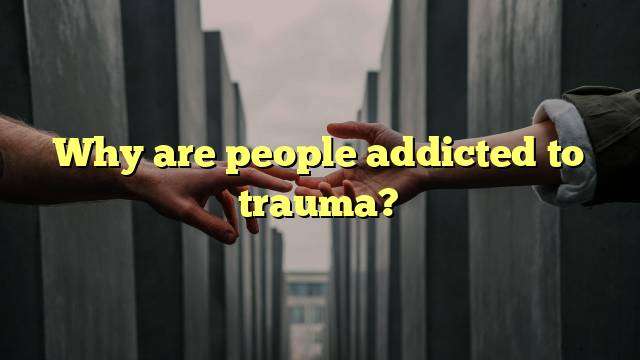Trauma and Addiction: What is the Link?
The relationship between trauma and addiction is a complex one. Trauma is defined as any event that causes psychological, physical, or emotional harm. It can be experienced as a single event or as a series of events that leave the individual feeling overwhelmed, helpless, and unable to cope. Trauma can be the result of abuse, neglect, or any other kind of life-threatening or life-altering event.
Addiction is defined as a chronic, relapsing disorder characterized by compulsive drug seeking and use despite harmful consequences. It is characterized by an inability to control the use of a substance or activity despite the knowledge that it causes physical and psychological harm. Addiction can be caused by a variety of factors, including genetics, psychological or emotional issues, or environmental factors.
The relationship between trauma and addiction can be seen in the way that trauma can lead to addiction. Individuals who experience traumatic events in their lives may develop maladaptive coping mechanisms, such as substance use, in an attempt to numb the pain and distress that they are feeling. This can lead to a cycle of addiction, as the individual continues to use substances or engage in addictive behaviors in order to cope with the traumatic experience.
Trauma can also lead to changes in a person’s brain chemistry, which can increase the risk of addiction. Research has shown that individuals who have experienced trauma are more likely to have changes in the structure and functioning of their reward pathways, which can lead to a heightened sensitivity to drugs and alcohol. This can make it more difficult for the individual to resist the urge to use, leading to further substance use and an increased risk of developing an addiction.
The Impact of Early Trauma
Early trauma can have a significant impact on a person’s ability to cope with stress. Studies have shown that individuals who experienced traumatic events in childhood are more likely to become addicted to drugs or alcohol in adulthood. This is because early trauma can lead to changes in the brain’s reward pathways, as well as changes in the way the brain responds to stress.
For example, research has found that individuals who experienced childhood trauma are more likely to have an increased sensitivity to drugs and alcohol, which can make it difficult for them to resist the urge to use. Additionally, those who experienced early trauma may also have difficulty regulating their emotions, which can lead to impulsive behaviors and an increased risk of engaging in risky behaviors, such as substance use.
Treating Trauma and Addiction
In order to effectively treat trauma and addiction, it is important to understand the underlying causes and to address the psychological and emotional issues that are contributing to the addiction. This can involve a variety of approaches, such as cognitive-behavioral therapy, psychotherapy, and trauma-focused therapies.
Cognitive-behavioral therapy can help individuals identify and address the negative thoughts and behaviors that are contributing to their addiction. This type of therapy can also help individuals learn how to better manage their emotions, as well as how to develop healthier ways of coping with stress.
Psychotherapy can also help individuals understand the underlying causes of their addiction, as well as how to address any unresolved issues from the past that may be contributing to the addiction. This type of therapy can also help individuals develop healthier coping mechanisms and to recognize the triggers that can lead to substance use.
Finally, trauma-focused therapies can help individuals work through their traumatic experiences and learn how to cope with the psychological and emotional aftermath of those experiences. This type of therapy can also help individuals develop healthier ways of thinking and behaving, as well as more effective ways of managing their emotions.
Conclusion
The relationship between trauma and addiction is complex and multi-faceted. Trauma can lead to changes in a person’s brain chemistry, which can increase the risk of addiction. Additionally, early trauma can also have a significant impact on a person’s ability to cope with stress and can lead to an increased risk of developing an addiction.
In order to effectively treat trauma and addiction, it is important to address the underlying causes, as well as the psychological and emotional issues that are contributing to the addiction. A variety of approaches, such as cognitive-behavioral therapy, psychotherapy, and trauma-focused therapies, can help individuals better understand the link between trauma and addiction, as well as how to develop healthier coping mechanisms and manage their emotions.
